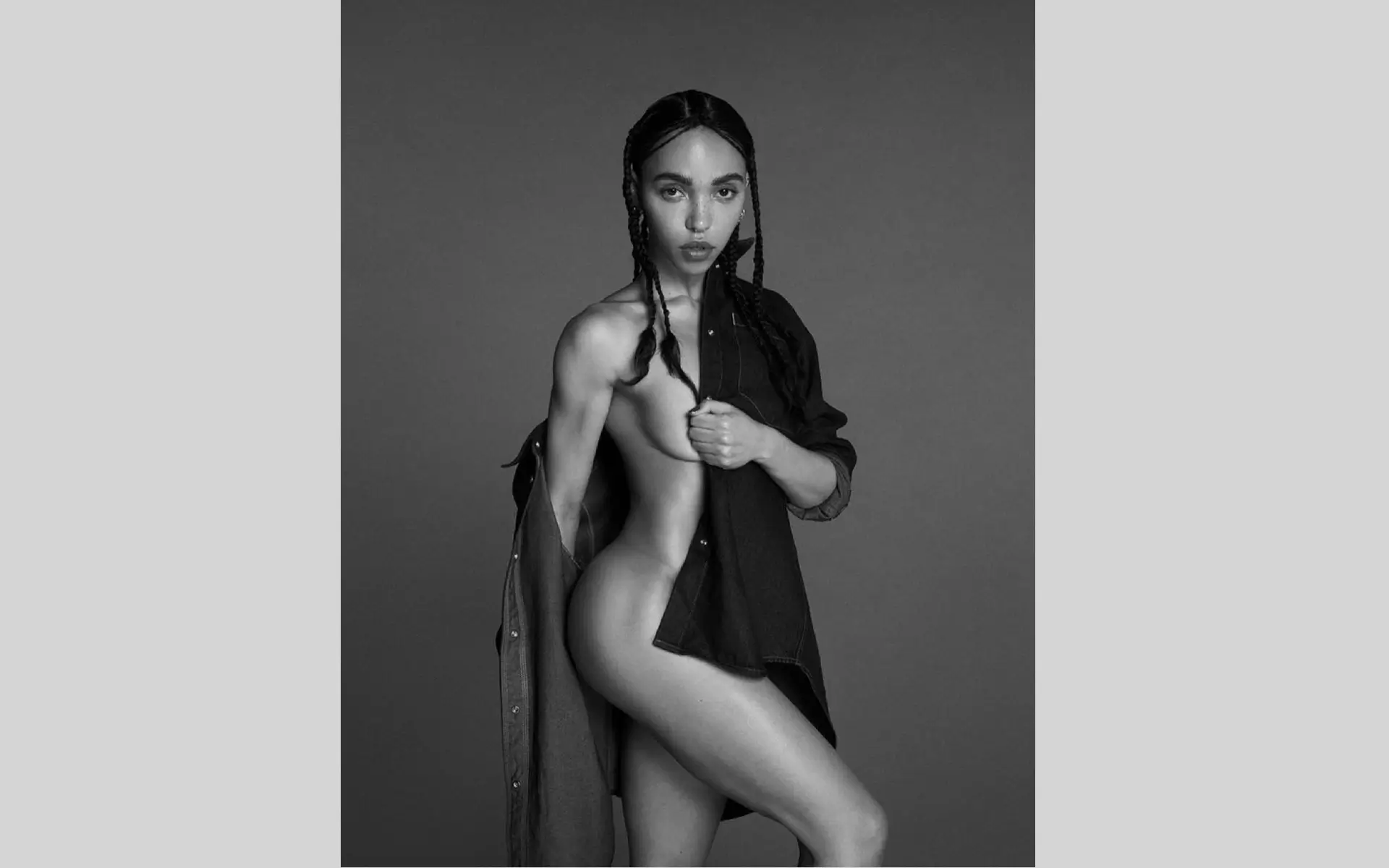FKA Twigs, the British singer-songwriter, recently found herself at the center of a controversy surrounding her Calvin Klein advertisement campaign. The campaign, which featured Twigs partially nude, draped in a denim shirt, was banned in the United Kingdom by the Advertising Standards Authority (ASA). The ASA deemed the ad as presenting Twigs as a “stereotypical sexual object.”
The Calvin Klein ad in question showcased FKA Twigs wearing a denim shirt that covered only half of her body, leaving one side exposed. The ASA received two complaints about the ad, alleging that it objectified women and was inappropriate for display in an untargeted medium. Upon reviewing the complaints, the ASA concluded that the ad used nudity and focused on Twigs’ physical features rather than the clothing being advertised, thus presenting her as a stereotypical sexual object. As a result, the ASA ruled that the ad must not appear again in its current form.
In response to the ban, FKA Twigs took to Instagram to express her thoughts and address what she perceived as double standards in the industry. She declared that she did not see herself as a stereotypical sexual object but as a beautiful, strong woman of color who has overcome significant pain. Twigs further argued that her art aligns with the standards set by iconic women such as Josephine Baker, Eartha Kitt, and Grace Jones, who defied societal norms and embraced their unique sensuality. She voiced her pride in her physicality and her refusal to let others change her narrative.
The banning of FKA Twigs’ Calvin Klein ad raised concerns about double standards in the industry. Critics pointed out that Kendall Jenner’s similar ad for the same campaign did not face the same level of backlash. This discrepancy led to questions about the criteria used to evaluate these campaigns and whether there is a bias when it comes to the portrayal of women in advertising. It highlighted the need for a consistent and fair approach in assessing the representation and objectification of women in advertisements.
Calvin Klein, the fashion brand responsible for the controversial ad campaign, defended the images, stating that they were not vulgar and featured confident and empowered women who identified with the brand. The company argued that the ads conveyed a progressive and enlightened message. Calvin Klein emphasized that both FKA Twigs and Kendall Jenner had collaborated on the campaign and approved the images before their release. Despite the brand’s defense, the ASA upheld its decision to ban Twigs’ ad, citing its focus on her physical features rather than the clothing being advertised.
READ ALSO: Jeremy Allen White’s Calvin Klein Ad: A Sensational Success
The banning of FKA Twigs’ Calvin Klein ad raises broader questions about the impact of such decisions on the advertising industry. It highlights the power of regulatory bodies, like the ASA, in shaping the boundaries of acceptable advertising content. The decision to ban an ad can have significant consequences for brands, artists, and the broader conversation surrounding body image, objectification, and empowerment. It also underscores the ongoing dialogue about the portrayal of women in media and the importance of promoting diverse and inclusive representations.
Calvin Klein has a history of provocative advertisements that push boundaries and generate controversy. In the past, the brand has faced criticism for ads featuring young models, such as Brooke Shields, Mark Wahlberg, and Kate Moss, in various states of undress. These campaigns often sparked debates about the objectification of women and the impact of such imagery on society. While Calvin Klein has evolved to embrace more inclusive and diverse representations in recent years, the controversy surrounding FKA Twigs’ ad reminds us of the brand’s provocative past.
FKA Twigs’ participation in the Calvin Klein ad campaign was driven by a desire to create iconic imagery that resonates with people on an emotional and visceral level. The artist believes in the power of truthful representation and aims to challenge societal norms and expectations. By baring her body and expressing her unique sensuality, Twigs seeks to empower others and redefine the standards of beauty and femininity.
READ ALSO: Kali Uchis and Don Toliver Expecting Their First Child Together: A Joyous Announcement
Social media played a significant role in amplifying the conversation surrounding FKA Twigs’ banned ad. Fans and supporters took to platforms like Instagram and Twitter to express their solidarity with the artist and criticize the double standards evident in the ASA’s ruling. The ability to share opinions and engage in public discourse through social media has become a powerful tool for challenging societal norms and holding brands and regulators accountable.
The banning of FKA Twigs’ Calvin Klein ad serves as a reminder that the advertising industry is still grappling with issues of representation, objectification, and empowerment. It calls for a continued dialogue and examination of the ways in which ads can promote inclusivity, diversity, and positive body image. Brands have a responsibility to consider the impact of their campaigns and ensure that they empower individuals rather than perpetuating harmful stereotypes.
